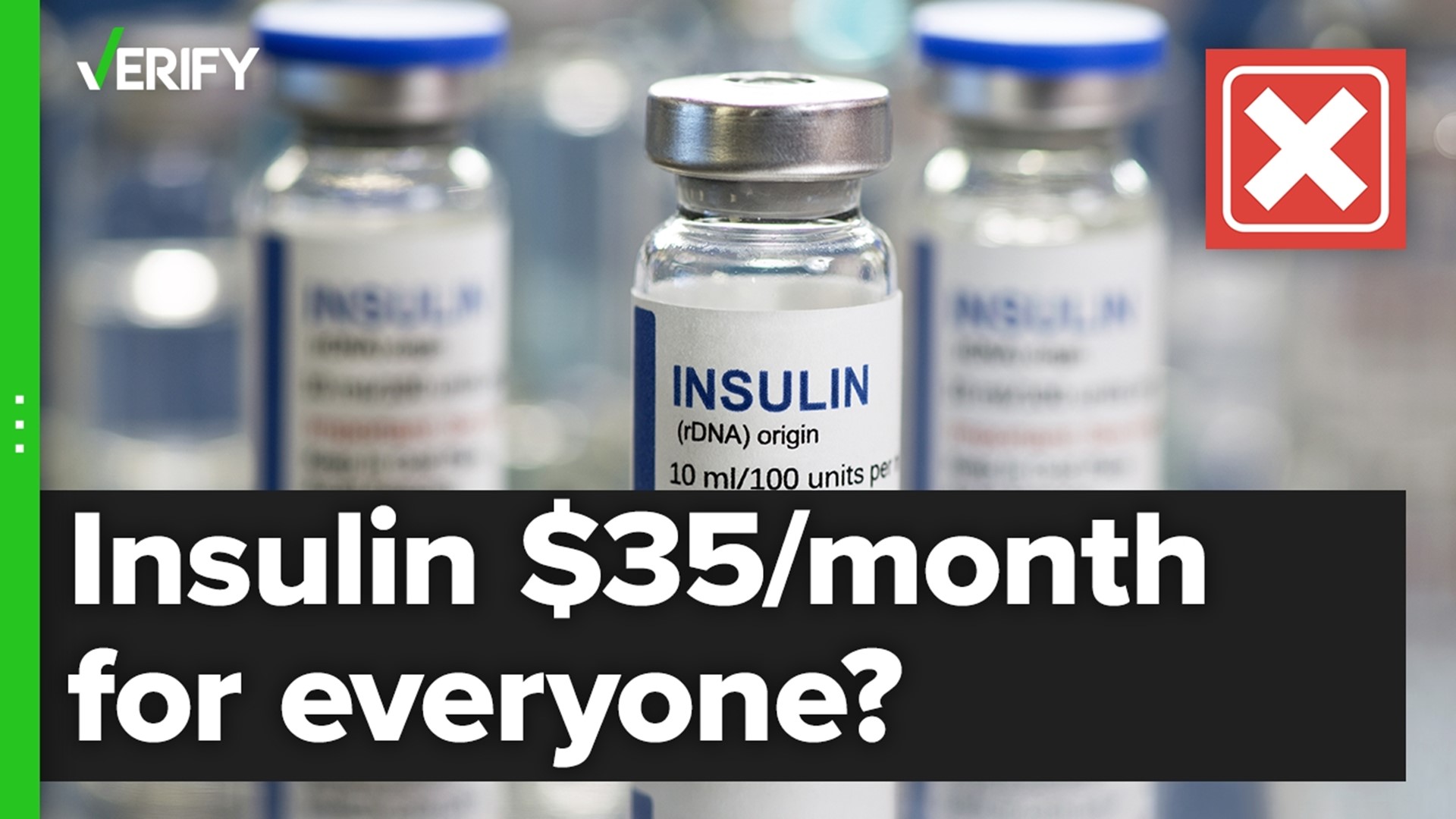Millions of Americans have diabetes and need insulin to survive, but the price of the drug is often too much to bear.
The American Diabetes Association estimates a quarter of diabetics have at some point had to ration their insulin. That’s dangerous and can even be fatal.
Outrage to those circumstances prompted the U.S. House to pass the Affordable Insulin Now Act. The bill was largely promoted by Democrats, and 12 House Republicans voted in favor.
Supporters say the act would cap the cost of insulin to $35 per month. But there’s been debate among diabetes activists and lawmakers about to what extent this proposal would really help the millions of people who rely on insulin.
THE QUESTION
Would the Affordable Insulin Now Act cap the cost of insulin to $35 per month for all Americans?
THE SOURCES
- Full text of the Affordable Insulin Now Act
- Analysis of proposal by Kaiser Family Foundation
THE ANSWER
No, the Affordable Insulin Now Act would not cap the cost of insulin to $35 per month for all Americans – it only affects some people with health insurance.
WHAT WE FOUND
The key portion of the full text of the Affordable Insulin Now Act reads, in part: “For plan years beginning on or after January 1, 2023, a group health plan or health insurance issuer offering group or individual health insurance coverage shall provide coverage of selected insulin products and, with respect to such products, shall not… apply any deductible; or… impose any cost-sharing in excess… per 30-day supply… $35.”
In other words, if you’re insured, this bill would cap your monthly co-pay for insulin at $35.
If you’re uninsured, this bill wouldn’t do anything to help you.
That could still mean significant relief for some diabetics. A Kaiser Family Foundation study found about a quarter of insulin users would see their monthly costs reduced by this proposal.
But there’s nothing in the bill that would limit the actual price pharmaceutical companies charge for the drug.
Critics say as a result, insurance companies could just wind up raising premiums.
Critics also point to the word “selected” in the bill text, which indicates insurers would not be required to cover all types and brands of insulin under this bill, meaning some people might need to alter their prescription in order to save money.
Still, the American Diabetes Association applauded the bill, and called on the Senate to pass it.
The House passed the bill on March 31; it has yet to be received in the Senate.
More from VERIFY: No, you can't cure a cold by 'sweating it out'

